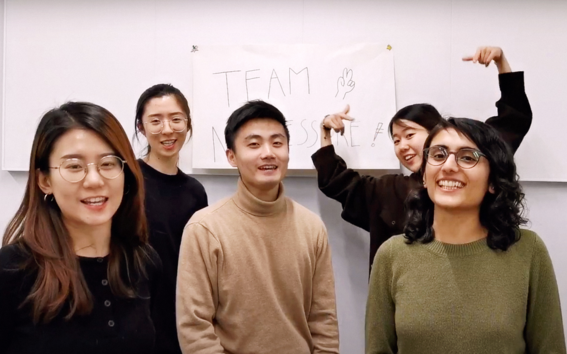Winning service concept to bring better healthcare for Roma people

Student design teams from recognised European design academies and universities have invested five months in design research, ideation and development. They were challenged on "How can we improve the heart health of people in Europe that are ‘invisible’, neglected, underserved, forgotten or overlooked?" by the Student Service Design Challenge 2020.
This year, more than 35 student design teams from over 15 academies and universities entered the competition. The winning team came from University of the Arts London, with their WomenToHeart service concept, that helps women to identify and communicate heart symptoms via metaphors.
The winning concepts were based on five criteria: people centric, society oriented, circular & sustainable, technology enabled, and business viable. Participating teams’ service solutions this year focused on a variety of users such as overweight children, Turkish migrants, isolated elderly people, stroke victims, night shift workers and flight attendants.
Relevant solution to any under-resourced community
Aalto’s team No Pressure with their service concept “RO+” creates a hassle-free journey for Roma people. On the platform Roma, healthcare providers and social service workers can access information in one place and coordinate with each other on referrals, appointments and the status of temporary ID. The service can solve Roma’s problems, including language barriers, by simplifying the processes.
‘We explored the healthcare experience from Roma in Finland. Roma people who lack proper education and have a low level of literacy, a basic digital literacy and with or without a temporary ID, have a hard time getting adequate access to healthcare. We searched for a solution to help the Roma community get better access to healthcare while generating trust in the system and leading healthier lifestyles’, Team ‘No Pressure’ explains.
The team is made up of five design students from Aalto University in Espoo, Finland, with different backgrounds: humanitarian design activism, systemic thinking, empathic design among others. Of the students, Jooeun Park (South Korea), Shreya Sood (India), Bohan Sun (China), Qianfei Gu (China) and Zhengshuang Han (China), four are currently enrolled in the Master in Collaborative and Industrial Design at Aalto University, and one of them is pursuing the Master in Creative Sustainability. They describe themselves as empathic design students who aim to create social change by having a meaningful impact on people in vulnerable situations.
‘Although the starting point can seem small, only targeting a specific group of people, in the end the result may cover a far bigger user group and have a chance to make real change.’
The silver winner receives a monetary prize of EUR 2,500, as well as EUR 2,000 for the University.
‘The team successfully identified an underserved user group in line with the brief and demonstrated a detailed understanding and communication of their experiences and pain points. The storytelling is well done, how the app works and its relevance is well articulated, and the technical solution is properly thought through. The integration of systems relates to many current health and human services problems and could be scalable across multiple use cases’, states the jury.
‘Even though they focused on a specific community, when discussing access to care and social determinants of health, the solution can be relevant to any under-resourced community with limited access and could be leveraged in multiple areas.’
The team was mentored by adjunct professor Nuria Solsona, and supervised by associate professor Severi Uusitalo.
Read more on SSDC website
Read more news

Significant donation to boost pavement engineering research and education
Companies and associations in the field have donated €400,000 to the School of Engineering.
Design strengthens industrial competitiveness – human-centered factory work at the core
Factory work is undergoing a transformation: new technologies and artificial intelligence are changing the content and roles of work. Aalto University’s Department of Design is studying this change from a human-centered perspective in the HiFive project.School of Business students Kuura Koivisto, Rosa Pohjolainen and Juulia Turkkila were members of the Finnish Olympic team
‘Finland and Aalto University had a great representation at the Winter Olympics again,’ says Professor of Practice Sami Itani






